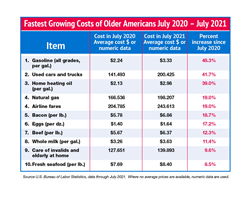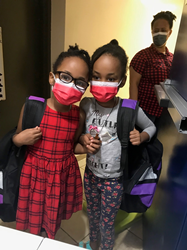BOSTON (PRWEB)
October 06, 2021
Activate Care®, a leader in integrated health and social care solutions, today introduced America’s first Community Care Record, which sets a new standard for health and social care coordination and delivers a new level of community health integration. Based on feedback and outcomes data from hundreds of client organizations, Activate Care’s Community Care Record provides healthcare and social services leaders with a shared space for designing, convening, managing, reimbursing, and continuously improving social interventions at scale.
Social interventions are reshaping the community health landscape. Health and human services systems are looking to transform how they screen for social risk and intervene with local partners to address complex health and social needs, and they are turning to Activate Care’s team of experts to connect every interaction across hospitals, managed care organizations, public agencies, and social services.
Activate Care embarked on a multi-year journey to completely re-imagine care coordination for the SDOH era. Before COVID-19, the company announced its new platform technology—Activate CareHub™—that made it easy for communities to safely exchange information across sectors. Amid the pandemic, Activate Care saw rising social needs and partnered with United Way/2-1-1 organizations and other referral management platforms, helping local community services create opportunities for individuals and families to thrive. And today, Activate Care is launching the next generation of sustainable community health interventions with America’s first Community Care Record.
Where Care for the Whole Person Happens—Community Care Record, from Activate Care®
A key part of the CareHub Platform, the Community Care Record is comprised of three pillars that enable care teams across the community to work faster, smarter and intervene beyond the referral to coach and guide clients through their journey.
Integrated Client Journey (new!): The Community Care Record brings every care team stakeholder together in one shared space that is modern, efficient and intelligent to every Activate Care user in every sector—healthcare, social services, education, justice, and more. Relevant information from multiple care delivery systems is surfaced for each user, enabling privacy compliance while streamlining processes and making workflows more intuitive.
Implementation Blueprints: Based on Activate Care’s near-decade experience implementing social interventions, Blueprints translate this experience into configurable process flows for any social intervention program model. The Blueprints offer a how-to manual for program managers, enabling any community to implement effective interventions that work for every population and every health and social need, supported by services delivered by Activate Care’s team of public health professionals.
Standard Reports Library: Available since 2020, with new reporting modules added every month, the Standard Reports Library helps client organizations meet reporting needs using pre-configured elements—choose from more than 130 standard reports designed by Activate Care’s team of data analysts.
The CareHub Platform: Re-Imagined for Today’s Social Interventions
Activate Care has become the platform of choice for social interventions because of its CareHub infrastructure, which allows communities to integrate with other health and social care systems to extend capabilities that meet their specific requirements. Building upon that, the CareHub Platform elevates the user experience with Community Care Record functionality designed to enhance program performance while putting patients and clients at the center. Activate Care’s Services team then helps community leaders increase equity, streamline interventions, accelerate progress, and tell a powerful impact story.
New benefits for program managers include:
Get data from anywhere: Data is locked in different systems and interoperability is key. The Activate CareHub platform aggregates everything a care provider needs to know to start their day, including patient and client status updates and alerts to keep action items on track. Integrations with diverse systems across the community health ecosystem allow Community Care Records to populate real-time, longitudinal data from anywhere—providing an end-to-end view of a client’s journey. Moreover, Activate Care leverages modern standards of data exchange to facilitate bidirectional communication between systems, including leading EHRs and social referral platforms.
Get closure on client needs: Successful social referrals rely on the data within a community information exchange†. Activate Care’s Community Care Record streamlines data capture and sharing, giving care providers visibility into “the last mile” of care that happens beyond the referral, enabling true team-based care for social services providers. With a shared activity feed, care providers can see everything happening across all referrals and cases, even those managed by other organizations, and the key next steps in one simple view. In addition, collaboration tools built into the Community Care Record allow care providers to work together across organizations to tailor support and expertise as client needs change—reducing referral failure and client attrition.
Get reimbursed: Activate Care offers customized reporting exports and data feeds to fit the needs of every convening organization and their network of partners. Reimbursement reports can be mapped to process workflows with resulting invoices shared directly with funding partners. In addition, advanced payment models like California’s Cal-AIM are also supported, with every invoice being shared with managed care organizations in the standard 837/835 format that MCOs require. Activate Care’s community engagement and data analyst teams support community readiness and program configuration, ensuring successful adoption and sustainability with new models of care and reimbursement.
Activate Care Feedback and Outcomes Data
Activate Care users, including community health workers and case managers, are quick to note the benefits of the Community Care Record, including its ease of use, program configurability, and accessibility for clients and families. One hospital leader described Activate Care’s technology as “a great solution for the needs of [their] patients,”(1) while a care coordination director appreciated how it helps them “carefully track [their] contacts with members” (2) to meet their performance goals.
Activate Care client organizations typically experience improvements in efficiency, effectiveness, and measurable outcomes, including a 30% increase in program capacity, 65% increase in client/patient engagement, 28% increase in community partnerships, and where clinical outcomes data are available, a 33% decrease in avoidable ED visits.
“We designed and built America’s first Community Care Record based on the collective feedback of hundreds of our customers, and our experience supporting the completion of nearly 10,000,000 care activities in our CareHub platform,” said Ted Quinn, Founder and CEO of Activate Care. “The communities we serve have taught us that measurable outcomes require a Community Care Record with the defined tasks, activities, referrals, and team members working within a cross-community workflow. The real work is led by community organizations addressing challenges of housing, food insecurity, and other social needs.”
Health and human services leaders interested in scaling social interventions in their communities can join the inaugural live episode of Activate Care’s new podcast series, Community with Activate Care, hosted by Activate Care’s CEO, Ted Quinn, and Chief Health Equity Officer, Dr. John Loughnane. Register here: https://info.activatecare.com/community-live-registration
† ‘Community Information Exchange’ and/or ‘CIE’ are registered trademarks of Community Information Exchange, Inc., and no claim of ownership is made thereto by any use herein.
(1) https://www.healthcareitnews.com/news/boston-medical-center-boosts-care-epileptic-kids-telehealth-analytics-platform
(2) https://www.healthcareitnews.com/news/advanced-health-coordinates-physical-behavioral-and-dental-care-one-platform
About Activate Care®
Activate Care is America’s first Community Care Record, offering services, technology and data analytics to communities standing up care models that recognize the central role that social services play in reducing inequities and improving health. Activate Care connects patients, families, care teams, and community partners to address social determinants of health and create better whole person care on the journey to health and wellbeing. With Activate Care, everyone directly involved with a patient’s health can act together to improve health and social outcomes, making healthier lives happen, wherever they are. Activate Care is boldly working with our partners to change care delivery across the country.
Headquartered in Boston, Mass., Activate Care is privately held and venture-funded by the disruptive innovation investment firm, Rose Park Advisors. The company was named one of BostInno’s “50 on Fire” in fall 2020, which showcases the 50 companies in Boston “with innovative approaches to solving problems and making the biggest impact.” For more information, visit https://www.activatecare.com.














